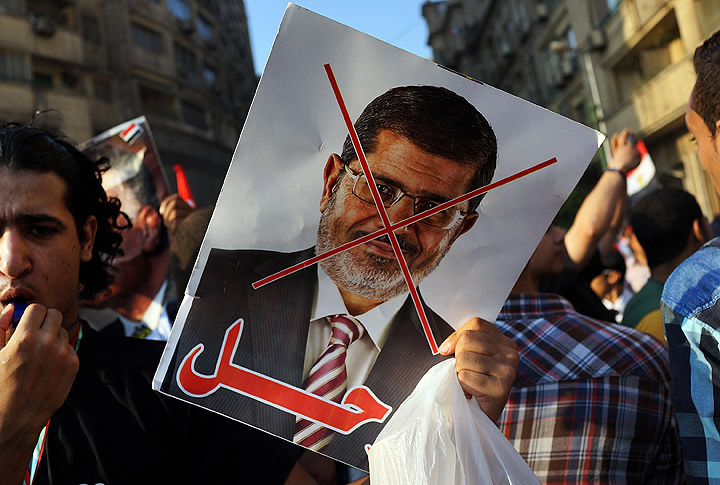TORONTO – In the winter of 2011 it was common to hear Egypt’s Arab Spring referred to as a “Facebook revolution.”

Fed up with the uncertainty of former president Hosni Mubarak’s government, Egyptian political activists turned to social networks, predominantly Facebook, to voice their opinions and concerns. They organized rallies and protests.
Social networks like Facebook and Twitter quickly became the people’s main source of news.
As protests began to turn bloody, activists spread warnings of dangerous areas in 140 characters (or less) to prevent casualties; Facebook continued to fuel protests by allowing Egyptians to share news and updates.
That was until Mubarak virtually cut off Egypt from the outside world – shutting off cellphone and Internet access, preventing activists from spreading their messages but fueling anger towards the leader.
This culminated in even larger protests, including January 25 the “Day of revolt,” eventually leading to Mubarak’s government being overthrown.
Read More: Interim president sworn in amid crackdown
Egypt is now facing similar circumstances – the military ousted Islamist President Mohammed Morsi, the country’s first democratically-elected president, on Wednesday.
Though social media continues to remain important in the country’s latest political upheaval, the landscape of its use has drastically evolved.
- B.C. introduces legislation recognizing Haida Gwaii Indigenous title
- Whale experts confident B.C. orca calf will survive, find family if rescue plan succeeds
- Plastic production cap still contentious as Ottawa set to host treaty talks
- Chemical plant shuts down after high benzene levels detected near Ontario First Nation
No longer is it just activists spreading information across social networks – politicians have joined in the conversation, showing two very heated sides to the turmoil.
Shareen Ayoub, blogger and former resident of Egypt, believes that the same politicians that were threatened by the public’s use of social media during the Arab Spring took note of how effective social networks are at getting a message out.
“Politicians now understand the importance of social media and they realize that they are only as good as the numbers that follow them,” Ayoub told Global News.
“They saw that as an asset and a major advantage and they definitely exploited it.”
Everyone from Morsi and his spokesperson, to the Muslim Brotherhood itself has a Twitter account and have been vocal online during the civil disruptions over the last week.
The spokesman and son of Morsi’s foreign advisor Essam al-Haddad even became the subject of Twitter backlash Wednesday for candidly defending Morsi and condemning the military coup on his account.
Read More: Top aide to Morsi under fire on social media
Morsi used both his Twitter and Facebook account to communicate with protestors, even rejecting the military’s ultimatum that he step down on Tuesday afternoon via a tweet.
Translation: “President Mohamed Mursi asserts his grasp on constitutional legitimacy and rejects any attempt to deviate from it, and calls on the armed forces to withdraw their warning and refuses to be dictated to internally or externally.”
“The Muslim Brotherhood understood the power of social media from early on,” said Ayoub.
“I think they really did try to engage with the public – when people did complain their Twitter handle was always replying to people trying to justify their reasoning.”
Ayoub, who lived in Egypt during the 2011 revolution and actively participated in the online discussions surrounding the protests, noted that one of the main differences she has seen on social media this time around is that because both sides are actively participating in conversations, it’s easier for those in the Western world to get the full picture of what is going on.
“Because people on the Muslim Brotherhood side were rapidly trying to defend themselves, you could really get a balanced idea of what was going on in Egypt just by following key people,” she said.
Ayoub noted that the latest developments in Egypt were partly ignited by online initiatives attempting to expose the lies and corruption that she believes were passed on to Morsi’s regime.
“People weren’t seeing the reform, so there was a website that was constantly judging the president to see if he was reforming, or keeping the public assured,” she said.
“That too gained momentum through social media – people on Facebook would share and it would gain more views. It spread kind of like a virus.”
Ayoub and her husband, who now live in Edmonton, Alta., still constantly turn to social media for updates about what is going on in their former home – a reaction she says is natural due to their reliance on social media during the revolution.
“If Facebook and Twitter did not exist I don’t think this revolution would have spread so soon,” she added.




Comments